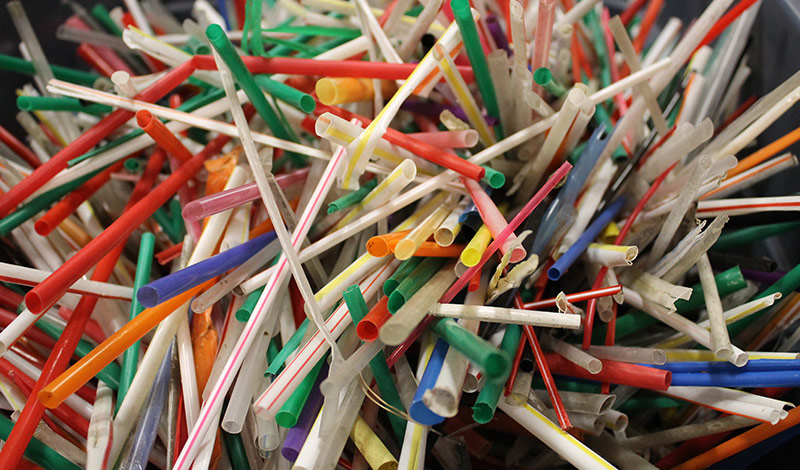Taking little steps to combat a giant plastic problem

Last fall, one of our neighboring communities took an admirable step in the fight against pollution.
In October, Narberth became the first town in Pennsylvania to officially restrict the use of single-use plastic straws at eateries. This move follows several other communities and companies across the country that have recently moved to go largely straw-free. Seattle, San Francisco and several other cities have banned straws, and McDonalds and Starbucks recently announced steps to remove straws from many locations. Locally, some Philadelphia restaurants have eliminated straws or transitioned to biodegradable straws made of paper or corn products.
Narberth made this decision in response to the obvious plastic problem faced by our society today. Walk down almost any street in Philadelphia, and you are sure to find some sort of plastic waste littering the sidewalks.
Americans use and dispose of as many as 390 million straws a day. These single-use suckers take up to 400 years to decompose and not only litter streets, but also pollute waterways and harm animals living in our oceans, rivers and streams. Often these animals starve to death because their stomachs cannot break down the plastic. By 2050, there will be more plastic in the ocean than fish, according to For A Strawless Ocean.
It’s a scary problem that doesn’t seem to have an easy answer. Yet we can make a difference. Even without city ordinances, restaurants can implement an “ask first” policy instead of automatically tossing a few straws in every drink. This would reduce straw usage by 60-90%. Instead of completely ditching the straw, Philadelphians can also opt for a reusable one.
Whether it be a straw, a plastic bag at the grocery store, or a reusable water bottle, the reduction in our consumption of single-use plastics is the single most effective step we can take to slowing the pollution of our public waterways. It’s a small change that represents an enormous mindset shift. We have to stop thinking that pollution problems are too extensive for small solutions. Every tiny straw or plastic bag that does not end up in the ocean or a landfill is a big win for our environment. It makes a difference, because every little bit helps.
At Clean Air Council, our commitment to reducing pollution includes any threat to our health, families and communities. Turning our attention to these tiny pieces of plastic with an enormous footprint is a chance to change public perception around curbing pollution. We’re also calling on local government to examine straw-eliminating ordinances like the laws proposed in Narberth. We have to start somewhere, and every business and every citizen in Philadelphia can start by minimizing their own straw use.

